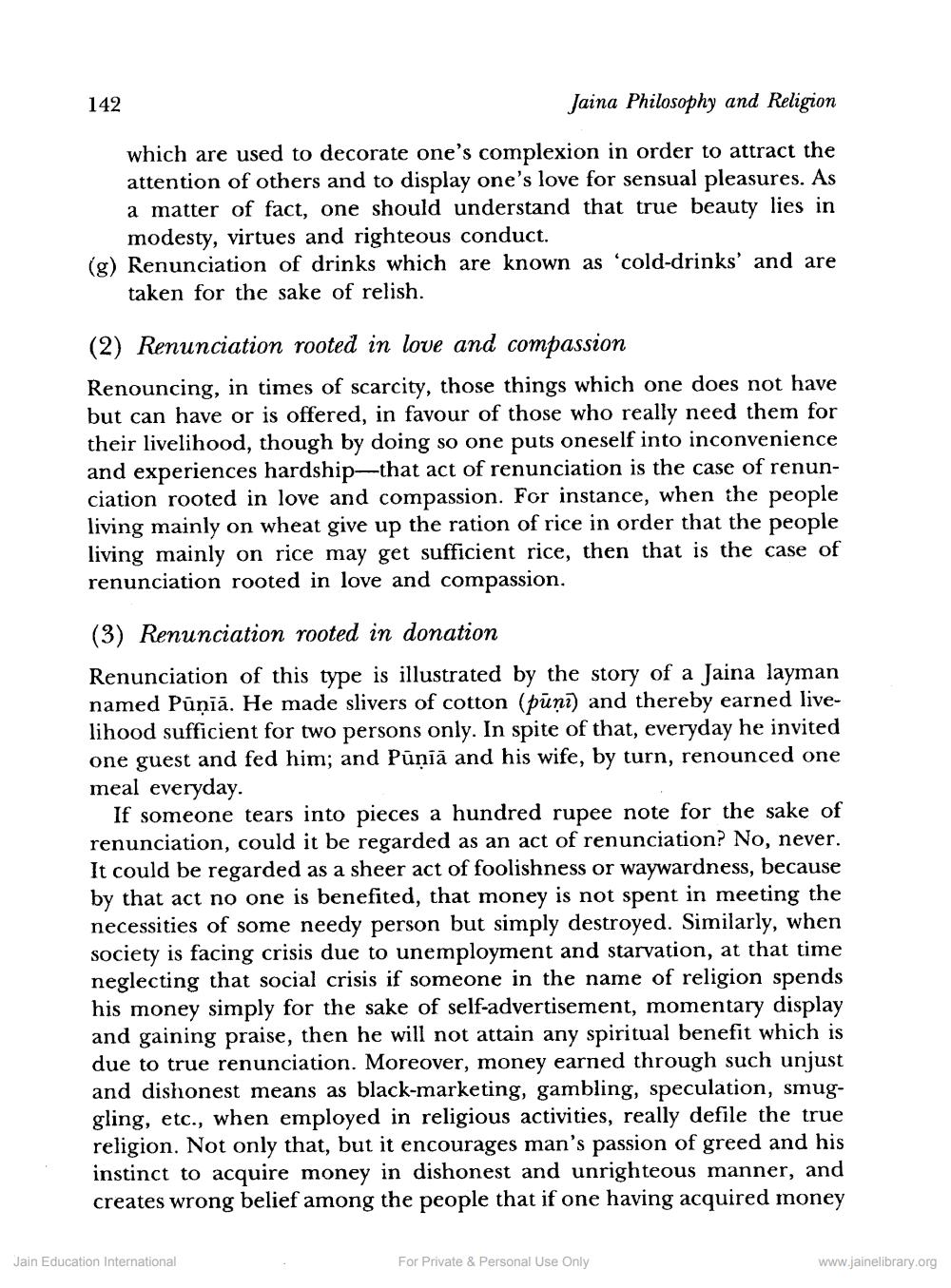________________
142
Jaina Philosophy and Religion
which are used to decorate one's complexion in order to attract the attention of others and to display one's love for sensual pleasures. As a matter of fact, one should understand that true beauty lies in
modesty, virtues and righteous conduct. (g) Renunciation of drinks which are known as 'cold-drinks' and are
taken for the sake of relish.
(2) Renunciation rooted in love and compassion Renouncing, in times of scarcity, those things which one does not have but can have or is offered, in favour of those who really need them for their livelihood, though by doing so one puts oneself into inconvenience and experiences hardship—that act of renunciation is the case of renunciation rooted in love and compassion. For instance, when the people living mainly on wheat give up the ration of rice in order that the people living mainly on rice may get sufficient rice, then that is the case of renunciation rooted in love and compassion.
(3) Renunciation rooted in donation Renunciation of this type is illustrated by the story of a Jaina layman named Pūņia. He made slivers of cotton (pūnī) and thereby earned livelihood sufficient for two persons only. In spite of that, everyday he invited one guest and fed him; and Pūņia and his wife, by turn, renounced one meal everyday.
If someone tears into pieces a hundred rupee note for the sake of renunciation, could it be regarded as an act of renunciation? No, never. It could be regarded as a sheer act of foolishness or waywardness, because by that act no one is benefited, that money is not spent in meeting the necessities of some needy person but simply destroyed. Similarly, when society is facing crisis due to unemployment and starvation, at that time neglecting that social crisis if someone in the name of religion spends his money simply for the sake of self-advertisement, momentary display and gaining praise, then he will not attain any spiritual benefit which is due to true renunciation. Moreover, money earned through such unjust and dishonest means as black-marketing, gambling, speculation, smuggling, etc., when employed in religious activities, really defile the true religion. Not only that, but it encourages man's passion of greed and his instinct to acquire money in dishonest and unrighteous manner, and creates wrong belief among the people that if one having acquired money
Jain Education International
For Private & Personal Use Only
www.jainelibrary.org




